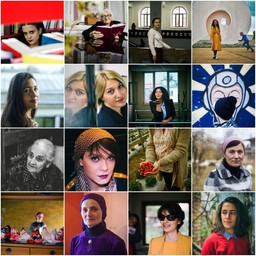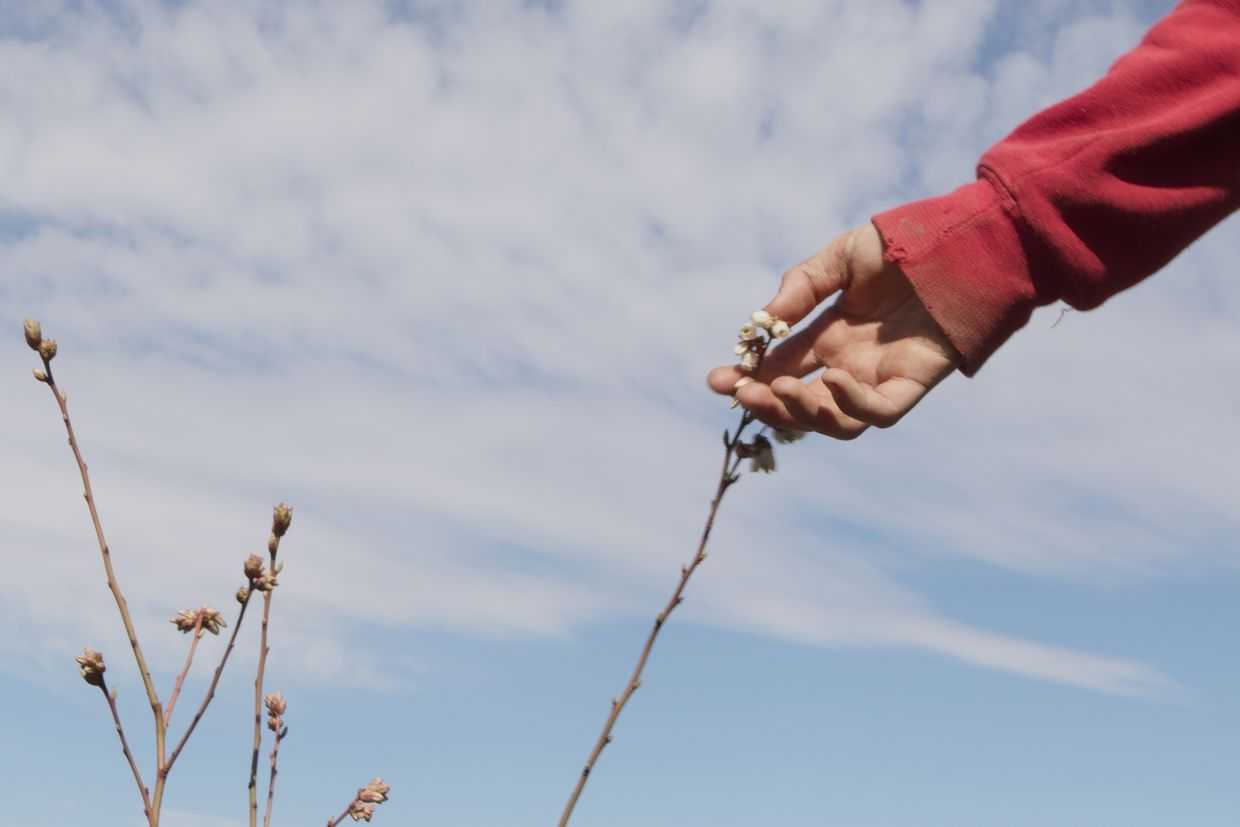
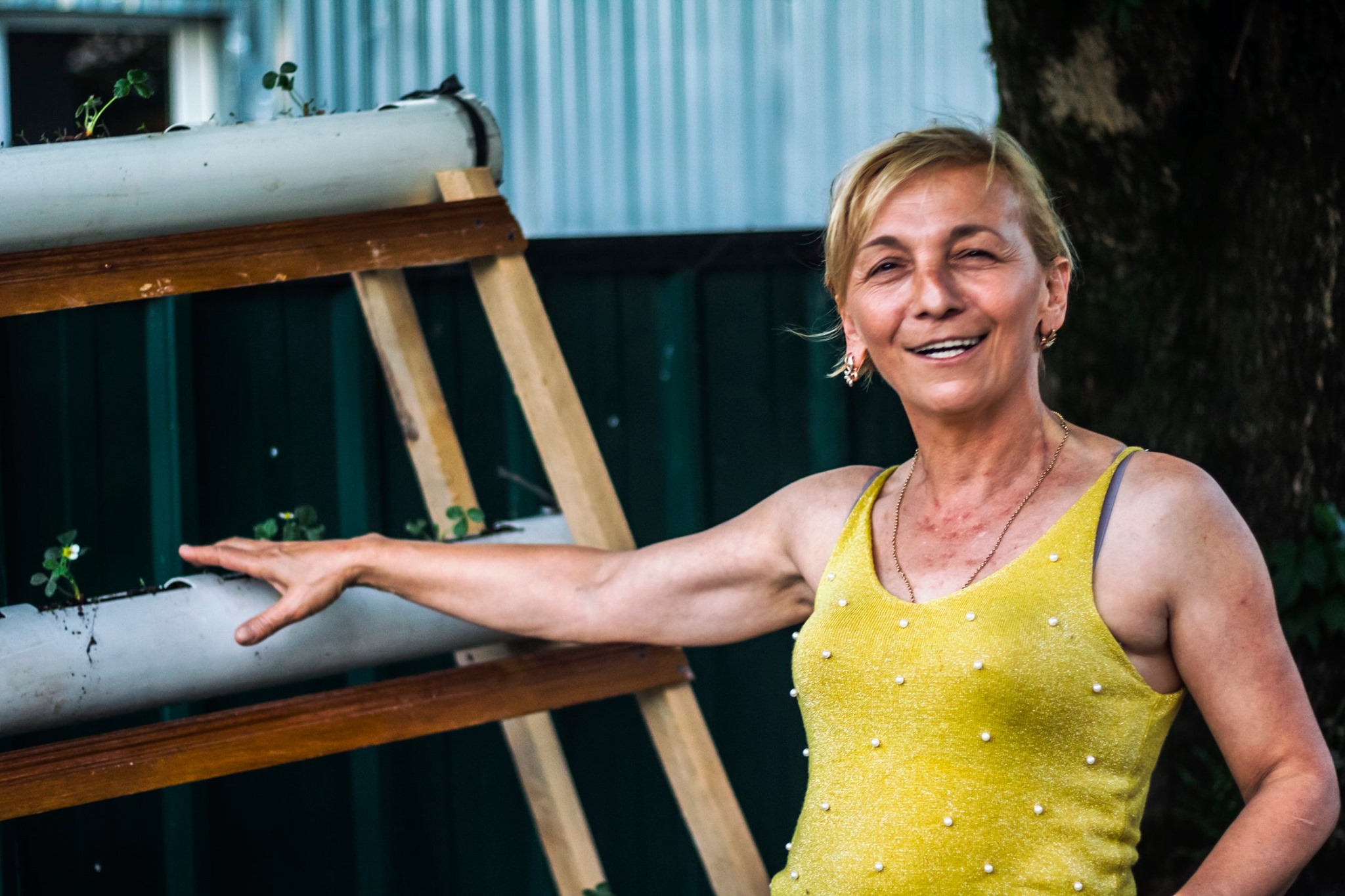
 ‘I was 29 when I had to emigrate and returned 14 years later. My sister was very young when she was diagnosed with an aneurysm. The doctors told her her chances of survival were only 2%, but I really wanted even this tiny chance.’
‘I was 29 when I had to emigrate and returned 14 years later. My sister was very young when she was diagnosed with an aneurysm. The doctors told her her chances of survival were only 2%, but I really wanted even this tiny chance.’
‘I was married at that time and lived in Tbilisi with my husband and son. I had to take a lot of loans. I took loans from private creditors and after the surgery and 46 days in a coma, I saved my sister. To tell the truth, my husband didn’t support me at that time. I wouldn’t live with him anymore, I would not forgive him.’
‘I returned to the village to live with my mother, with my three-year-old son and debts. I lived in terrible hardship. When people came to visit my sister I would stare at their hands to see what they had brought. When my neighbour would bring a little food I would first feed my son, then my sister, and then my mother. Kindergarten cost ₾5 ($1.80) back then and sometimes I couldn’t even get this ₾5 to send my son to at least get some free food. This responsibility always bothered me: when you move somewhere with a child and decide to raise them alone you should at least give them as much as they had before, if not more.’
‘I began to think about going abroad but my mother was against it. “What will people say?” she would tell me, and for a while, I avoided going. People in the village had a negative view of women who went to work abroad. But one day, my son returned home from kindergarten with his feet soaking wet from his torn shoes. Nothing would hold me back then. I collected ₾0.5 from people and arrived in Batumi with ₾6. I had hoped to go to neighbouring Turkey to work.’
‘It was very difficult work’
‘I ended up working for three years in Bulgaria. Then I worked for a year in Azerbaijan and the last ten years I spent in Turkey, taking care of an elderly person. In the beginning, I got assistance for a ticket and a single sandwich on the road. I remember I didn’t even have money to use the bathroom on the road and the driver gave me 10 lira ($1.70).’
‘I had to work in very difficult conditions. Before I learned the language I had to work for a low salary. I was paid $400 and I worked 24 shifts; it was very difficult work: taking care of a helpless elderly person and doing housework. I had one day off and I would go to another family to do cleaning, to earn more. Most of the women there lived the same life.’
[Read on OC Media about the journeys of Georgian emigrants: ‘They treated us like dogs’]
‘You don’t feel safe. If your documents aren’t in order you may not even get paid. I know a lot of cases where women were being abused, but no one is interested in those cases. No one was interested in us. Most of them do not have insurance, because for that you need to be there legally and pay taxes, which are painful to cut from low salaries.’
‘What will people say’
‘Everyone there is surviving; a clear goal helps you to survive there. I know a lot of women who have worked there for many years, sending money to Georgia, but they fail to improve their living conditions and their lives pass by, dreaming. Do you know why? Because families in Georgia perceive money sent by these women to be easy money, and they spend it very easily.’
‘Once, I sent $300 and arrived home very soon after to discover that my family had nothing to eat. After that, I decided not to send money directly, but to pay the supermarket every month and my family could get food there during the month. I left to return to work. I feel really sorry for the women who become slaves of the loans that members of their families take out and can never repay.’
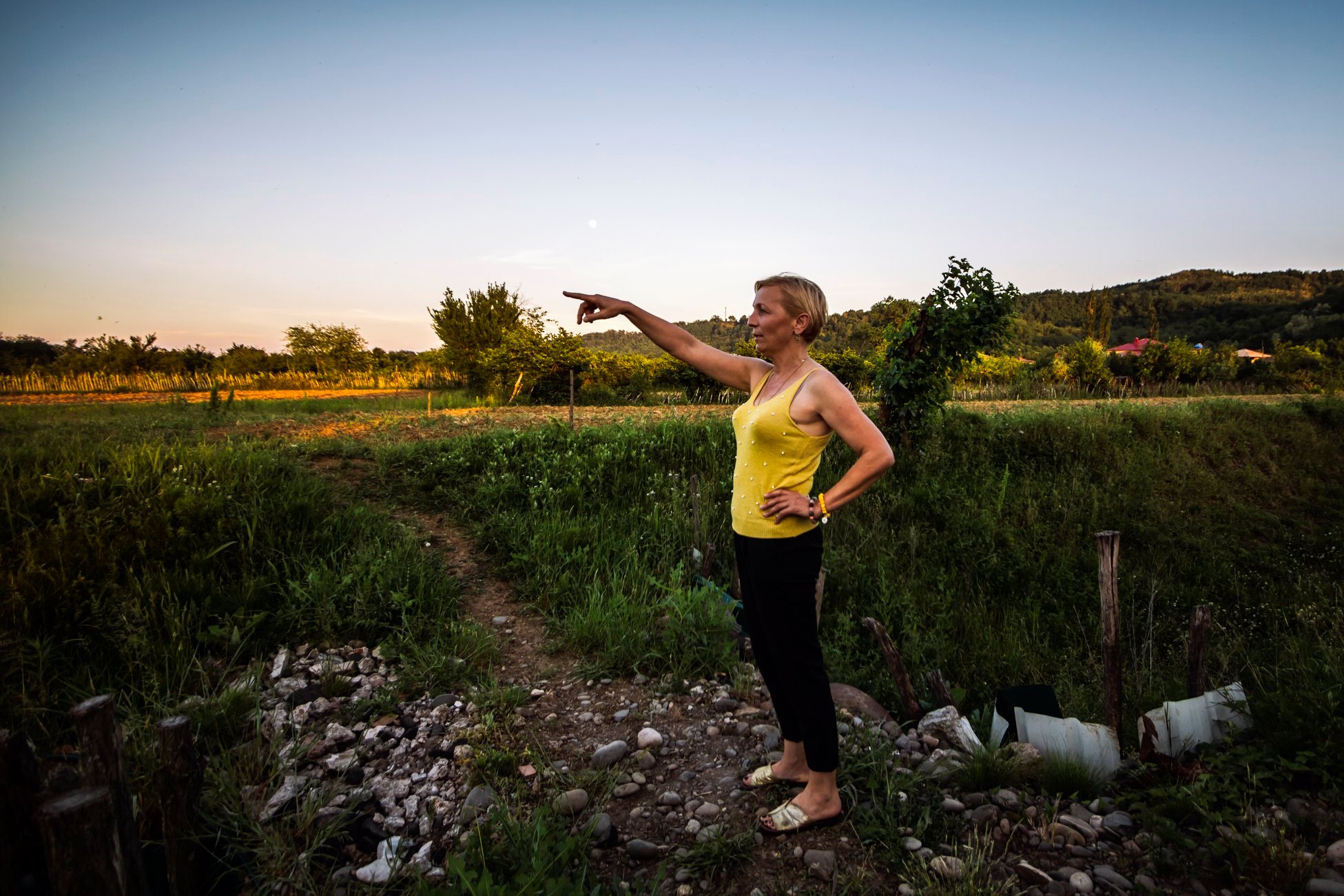
‘We migrant women, we have to work under different kinds of pressure. First of all, we are a very cheap labour force abroad. How many such women are the breadwinners for their families? But this is never enough for them, and on top of this, we have to bear the label of “what will people say”. Several times when I spoke on Skype with my mother she would go to a neighbour’s house so that people in the village could be sure that I was really working in a family and not “somewhere else”. Now when I see migrant women posting photos with their elderly women on Facebook I know that they do it to satisfy the curiosity of these people.’
[Read on OC Media about people trafficking to Turkey and Dubai: The Armenian women tricked into sex slavery]
‘I missed my son’s first day of school’
‘When I moved to Turkey my salary was $1,000; I had been managing to save money even with a salary of $400. My first goal was to cover my debts. Imagine, my debts with interest were ₾50,000 ($18,000). I contacted all the creditors and asked them to give me more time. I repaid all these debts within four years.’
‘My next goal was to build a house; so many of us lived in a tiny room. I remember that sometimes I would pass by a clothing shop in Turkey and would stare at the beautiful trousers and tops. But when I learnt the price my brain would calculate how many items for the house I could buy with the same money and then I would leave without buying a thing.’
‘I spent my best years like this, working. I missed my son’s first day of school, his dance performances. I would see only photos and videos online of my son growing up. But the most important thing was that I knew when I would return. When I covered my debts and completed the house I had one more desire — I wanted to buy a car. During our divorce, my husband told me that he would now watch me cry. Then I thought to myself that I would have a house and an income, that I would raise a good child, and that I would have a car too.’
‘When I returned to Georgia I visited my ex-husband at his house. When I saw him I signalled to him and flashed the headlights. He stared at me in silence, like an owl. It was such a pleasure it made up for all my 14 years of suffering.’
‘Everyone thought I was insane’
‘I returned to Georgia in 2016. I had some savings too and I began to think about what I could do. I had once seen a greenhouse in Kutaisi in winter. I thought to myself, if a Georgian is willing to leave their home in the winter, there must be money in it. I became interested in a greenhouse, but I didn’t want to risk it without any knowledge.’
‘I visited consultation centres, sometimes I would stand by those men as they discussed farming, I would learn what the prices on the market were. I collected all the information I needed and decided to create greenhouses for cucumbers.’
‘The first thing I learnt was that for a successful harvest, a drainage system was necessary. So one day, I brought excavators, dug the soil, brought the rocks, and created two greenhouses. My mother was outraged, telling the neighbours that her daughter had buried her savings in the soil. The neighbours would come to our house staring at me with doubts — everyone thought I was insane. They were advising me to move to Tbilisi with those savings, to buy a flat and live by renting the flat out.’
‘Then I got state funding to cover 60% of the cost of my project. The banks were refusing to finance the rest, but then finally, one bank agreed. I wrote a business plan and got funding. In a few months, I had five greenhouses. I built the trust of donors too, and recently, the Association of Farmers financed a heater worth ₾9,000 ($3,200) to heat the greenhouses.’
‘Now I have cucumber harvests for the whole year; I harvest about 20 tonnes a year. In winter, the prices go as high as ₾6–7 per kilogramme, and I try my best to harvest more during this period. I started with 800 square metres and now I have 2,000 square metres of greenhouses.’
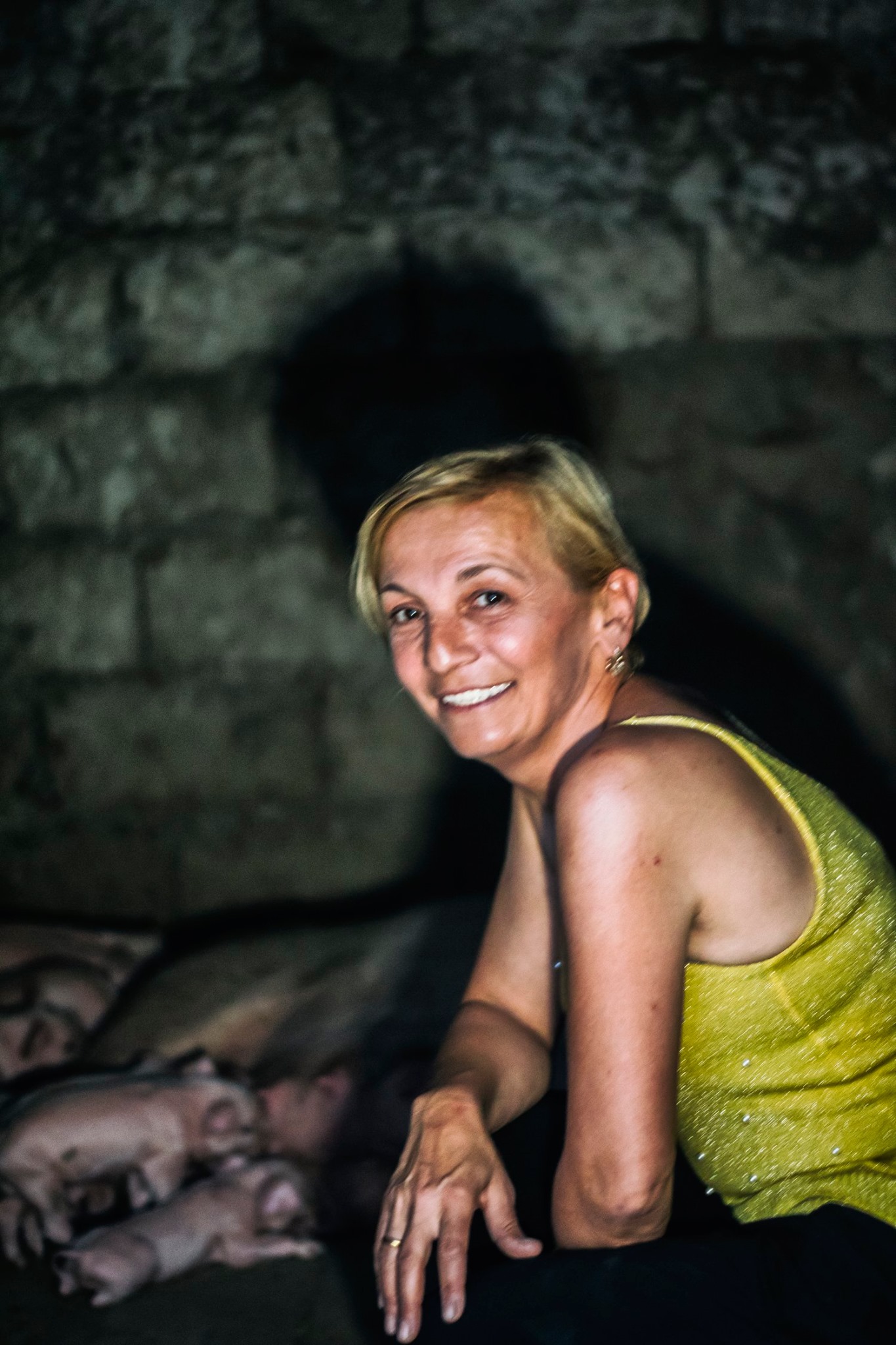
‘I also created a pig farm. When I have some extra money, I buy more land. I created a cherry plum orchard and I expect the first harvest next year. There is also an increasing demand for asparagus, and I will have that next year too.’
‘Even a 40-year-old man is a child and asks to be taken care of’
‘Those in the village who previously thought I was insane are now asking me for a job. I employed several of the neighbours. I have my style of management: everyone has their own tasks and no one does the same job, so they cannot blame their mistakes on each other.’
‘I am strict with my son as well, but I prefer to be strict so he gets used to working. And I paid him a salary for this work so he could satisfy his own needs, rather than rely on me his entire life. You know how it is in Georgia, even a 40-year-old man is a child and asks to be taken care of.’
‘I’m not making a profit yet because everything goes to the bank. In two years, I will have cover all of the loans and then I’ll feel better. However, I’m really growing in this work; I’m getting a lot of experience. Without the loans, I will be very strong.’
‘I was visiting a neighbouring village some time ago and saw that some guys had created a greenhouse. I went to it and noticed a mistake. I told them that their heating pipes were too thick and that it was too much for the heater they had. They didn’t believe me; how could a woman know. They finished harvesting in February, I am still harvesting.’
‘Lately, a lot of men want to date me. I’m surprised there are so many divorced and widowed men. I tell them that I have a child, a house, a business, and a car, why on earth would I wash your socks? They can do no good. They will start to stick their nose into my successful business, then they’ll try to limit me, but I am already independent and I will not bear being limited. I prefer being like this: moving slowly, but always forward.’
This article is a partner post written by Maiko Chitaia. The original version first appeared on Women of Georgia, on 5 June 2019.
